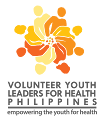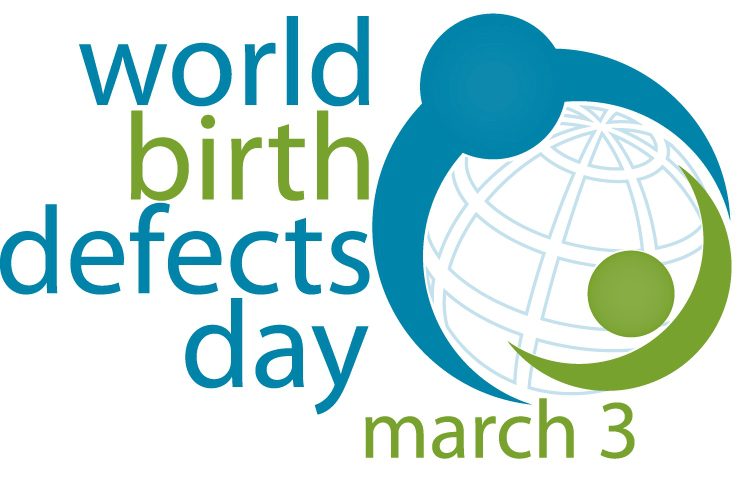Written by Ram Christian Cossid, RN
Batch K4
 |
| 13th NBS Convention. The 13th NBS convention gathered health practitioners, technical experts and NBS advocates (Photo: VMendoza, NSRC-NIH-UP Manila) |
With this venture, NBS further fortifies its take on the 5th Millennium Development Goal to help abridge the incidence of worldwide infant mortality and to promote their wellness. Now, NBS facilities once again convened to discuss updates regarding the program’s expanding scope and coverage, as well as the challenges and noteworthy steps that are being assumed to save more lives.
The 13th Newborn Screening Convention with the theme, Enhancing Newborn Care, Nurturing Minds, Brightening the Future and Saving more Lives, was held on October 6 and 7 at the Manila Hotel. The convention was organized by the Newborn Screening Society of the Philippines and the Newborn Screening Reference Center-NIH, UP Manila.
The 13th Newborn Screening Convention with the theme, Enhancing Newborn Care, Nurturing Minds, Brightening the Future and Saving more Lives, was held on October 6 and 7 at the Manila Hotel. The convention was organized by the Newborn Screening Society of the Philippines and the Newborn Screening Reference Center-NIH, UP Manila.
Day One (06 October 2015)
 |
| KEYNOTE SPEAKER. Brian Llamanzares, accompanied by Ms. Susan Roces, represented Sen. Grace Poe (Photo: VMendoza, NSRC-NIH,UP Manila) |
 |
| 2014 National Newborn Screening Coverage (NSRC-NIH, UP Manila/ newbornscreening.ph) |
 |
| Dr. Carmencita Padilla (Photo: VMendoza, NSRC-NIH,UP Manila) |
 |
| The Philippines Newborn Screening Project (1996) |
Capping the first day of the conference were the lectures and exchange of discussions on hemoglobinopathies, confirmatory testing and management of metabolic disorders by Dr. Reynaldo de Castro and Dr. Mary Ann Abacan. Sample cases were also presented to better understand some disorders included in the panel of ENBS.
Day Two (07 October 2015)
As our health department is trying to keep up with the growing needs for the people’s well-being, our local health sectors, non-government organizations, the youth and individual advocates have proactively heeded the call to mitigate the existing gaps.
Case in Point. Despite the unsettling increase in the number of Infant Mortality Rate (IMR) and Under Five Mortality Rate (UFMR) in the Cordillera Administrative Region (CAR), based on their Maternal and Neonatal Death Tracking Reports from 2012 to 2014, Dr. Virginia Narciso, NBS Program Manager of DOH-CAR, took to the plenary how they attempt to defy the numbers with one basic tool – commitment. It was a big challenge for CAR to embrace the ENBS program due to their lack of funds and their existing number of indigents who could not afford to pay for it. This roadblock gave birth to the joint efforts of different agencies to promote inexpensive yet effective ways to make ENBS more attainable. Similarly, development and passage of ordinances by some Local Government Units (LGUs) was also done to assure the implementation’s sustainability.
The Newborn Package. Essential newborn care, initial dose of BCG and Hepatitis B vaccine, newborn hearing test and the newborn screening test – these are the essentials of the newborn package. “But why not include the ENBS?” This is one of the questions raised by the audience during PhilHealth’s presentation, to which came the reply that the body “will look into it” in the efforts of providing the optimum level of service to all beneficiaries. Though the majority was expecting a less ambiguous response, they are positive that the inclusion of ENBS will transpire sooner. (Related; Infographic on Expanded Newborn Screening)
Big Shoes to Fill. “Today’s youth are tomorrow’s parents, teachers, doctors and future leaders.” Staying true to what the late hero, Dr. Jose Rizal, said about the youth as being the hope of the future, Mr. Emmanuel Christian Enriquez, RN, MAN, President of the Volunteer Youth Leaders for Health (VYLH) Philippines, imparted his share of insights as to why we must invest in the youth. In his 30-minute talk, Mr. Enriquez underscored the skepticisms that many have about what the youth can do and addressed these concerns with his clever mnemonics and riveting propositions. He reinforced everyone that with the right motivation and opportunity, the youth will champion future ordeals. (Related: The Youth Speaks for a Healthier Philippines)
The plenaries went on, saturating every mind with tons of information. I was one of those who took a breather to refresh my then throbbing temples, missing out on the lectures about Glutaric Aciduria and Genetic Counseling.
Other interesting topics included on the second day of the convention were the following:
As the clamor for better access and delivery of health in the country continue, the Newborn Screening Program remains steadfast in responding to and addressing the needs of the newborns and the women in their reproductive age, especially those in the underserved areas of the country. All throughout the plenaries, emphasis on joint efforts and collective responsibility are constantly echoed to achieve full coverage of the program and to save more lives.
Overall, the convention was very informative and the attendees will certainly have something to write or share about. I was not there by the time all the plenaries ended because I have to catch my flight back to Davao. But even so, i could say that the convention was a success and the essentials were delivered fairly to make us more informed and more encouraged.
I am optimistic that more lives will be saved through the Newborn Screening Program. As Mr. Enriquez puts it, “He who has health has hope and he who has hope has everything to succeed.” Together, we can make this happen.
As our health department is trying to keep up with the growing needs for the people’s well-being, our local health sectors, non-government organizations, the youth and individual advocates have proactively heeded the call to mitigate the existing gaps.
 |
| Dr. Virginia Narciso, NBS Program Manager of DOH-CAR (Photo: VMendoza, NSRC-NIH,UP Manila) |
The Newborn Package. Essential newborn care, initial dose of BCG and Hepatitis B vaccine, newborn hearing test and the newborn screening test – these are the essentials of the newborn package. “But why not include the ENBS?” This is one of the questions raised by the audience during PhilHealth’s presentation, to which came the reply that the body “will look into it” in the efforts of providing the optimum level of service to all beneficiaries. Though the majority was expecting a less ambiguous response, they are positive that the inclusion of ENBS will transpire sooner. (Related; Infographic on Expanded Newborn Screening)
 |
| VYLH-Philippines National President Christian Emmanuel Enriquez, RN, MAN (Photo: VMendoza, NSRC-NIH,UP Manila) |
The plenaries went on, saturating every mind with tons of information. I was one of those who took a breather to refresh my then throbbing temples, missing out on the lectures about Glutaric Aciduria and Genetic Counseling.
Other interesting topics included on the second day of the convention were the following:
- Implementation of ENBS by NSFs and ABCs of ENBS, with emphasis on the flow of procedures, from the procurement to patient referrals and continuous monitoring;
- The Roles of the Social Worker in the Newborn Screening Program, which highlights how the social worker reconciles health care and its accessibility to indigent patients;
- Screening for Critical Congenital Heart Disease by Pulse Oximetry, focusing on the early detection of the disease and its immediate management in early life;
- Newborn Screening Data for Preterm and Low Birth Weight Infants: Issues and Concerns, bearing on the updated NBS protocol and its implementation;
- Minimizing Unfit and Unsatisfactory Samples, stressing on the importance of proper specimen collection and handling;
- Newborn Screening Reference Center (NSRC) Online;
- Updates on the Newborn Screening Continuity Clinics; and
- NBS Program from a Parent’s Perspective.
As the clamor for better access and delivery of health in the country continue, the Newborn Screening Program remains steadfast in responding to and addressing the needs of the newborns and the women in their reproductive age, especially those in the underserved areas of the country. All throughout the plenaries, emphasis on joint efforts and collective responsibility are constantly echoed to achieve full coverage of the program and to save more lives.
Overall, the convention was very informative and the attendees will certainly have something to write or share about. I was not there by the time all the plenaries ended because I have to catch my flight back to Davao. But even so, i could say that the convention was a success and the essentials were delivered fairly to make us more informed and more encouraged.
I am optimistic that more lives will be saved through the Newborn Screening Program. As Mr. Enriquez puts it, “He who has health has hope and he who has hope has everything to succeed.” Together, we can make this happen.
________________
Ram Christian Cossid, RN is a graduate of Polytechnic College of Davao del Sur. In 2010, he became affiliated to the network during its Mindanao Island-wide Youth Camp (Batch K4). At present he is a Nurse at the Newborn Screening Center Mindanao - Southern Philippines Medical Center, Davao City.
Ram Christian Cossid, RN is a graduate of Polytechnic College of Davao del Sur. In 2010, he became affiliated to the network during its Mindanao Island-wide Youth Camp (Batch K4). At present he is a Nurse at the Newborn Screening Center Mindanao - Southern Philippines Medical Center, Davao City.












